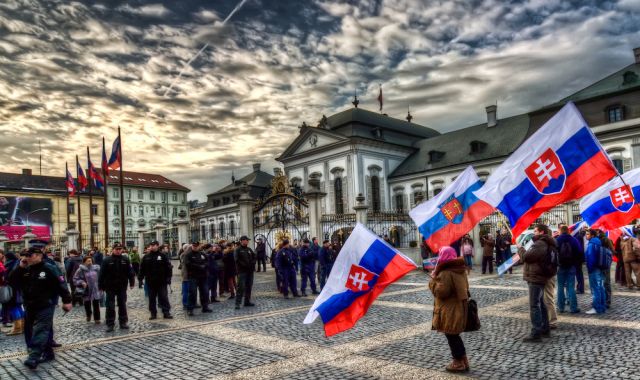A New Phase of Civic Movements: Implications for International Democracy Support
In the last decade, civil society across the world has experienced significant change, as new civic movements and individual activists have played an increasingly important role in driving democratic processes. Especially since the COVID-19 pandemic and the consequent closing of civic space in 2020, such informal civic activism has intensified across Latin America, Africa, Asia, and Europe, and has taken on new issues and tactics.
Tightly connected to this trend is the dramatic rise in protest activity that has dominated many media headlines globally. This increase in innovative, youth, and non-violent activism is a manifestation of assertive citizenship, and it is notable that this trend has unfolded even as most policy and analytical attention has been on democratic backsliding.
This report examines the implications of this new phase of intense informal civic activism for democracy and democracy-support strategies. While much has been written on social movements, and the report reinforces many familiar points, this analysis offers up-to-date evidence of an emerging phase of activism and finds new developments in international support strategies. The report draws on evidence from five countries: Belarus, Georgia, Nicaragua, Senegal, and Thailand. We selected these countries because they have all experienced civic uprisings or mobilisations over the past decade and have all attracted significant international democracy funding. Differences across regime types and regions also played a role in the selection process and are detailed in our methodological approach.
Thailand has since 2020 witnessed dynamic civic movements that have demanded democracy and advocated reform of the military and the monarchy. Belarus has seen its largest and most sustained civic mobilisation since the stolen 2020 presidential election. In Senegal, civic movements played a crucial role in ousting an autocratising regime in 2024. In Georgia, new grassroots movements have emerged in response to democratic backsliding since 2019 and transformed into a large-scale anti-government mobilisation. And in Nicaragua, democracy activists have adopted many new informal strategies as they defend themselves against an especially repressive regime.
Across these countries, the report notes emerging new features of informal activism. One particularly important change lies in the relationship between novel social movements and more established, formal civil society organisations (CSOs). New forms of coordination are emerging between the informal and formal parts of global civil society. This incipient phase of activism holds great democratic potential but has also attracted the attention of undemocratic regimes: over the last decade, autocratic and illiberal leaders have used brutal measures to suppress these emerging forms of civic mobilisation. Beyond jailing and brutally assaulting members of civic movements, regimes have attempted to discredit them with accusations of orchestrating foreign-led revolutions and attempts to destabilise their countries. International democracy support has yet to catch up with the changing shape of global civil society. As political developments such as the decision by the United States (US) to cut democracy aid reinforce autocratic dynamics, the role of civic mobilisation and civic movements becomes all the more important. With the European Commission currently drawing up a European civil society strategy, a deeper understanding of civil society trends is vital. Closer examination of possible strategies towards this shifting civil society landscape is required. Most democracy-support donors remain ambivalent on the question of whether they should back informal civic movements and individual activists, given the lack of institutionalisation and accountability mechanisms. This report argues that donors should support the new phase of civic movements, but in tandem with, rather than separately from, their existing support for CSOs.
The European Democracy Hub is a joint initiative of the European Partnership for Democracy and Carnegie Europe.
Photo credit: © Joe Yates on Unsplash


